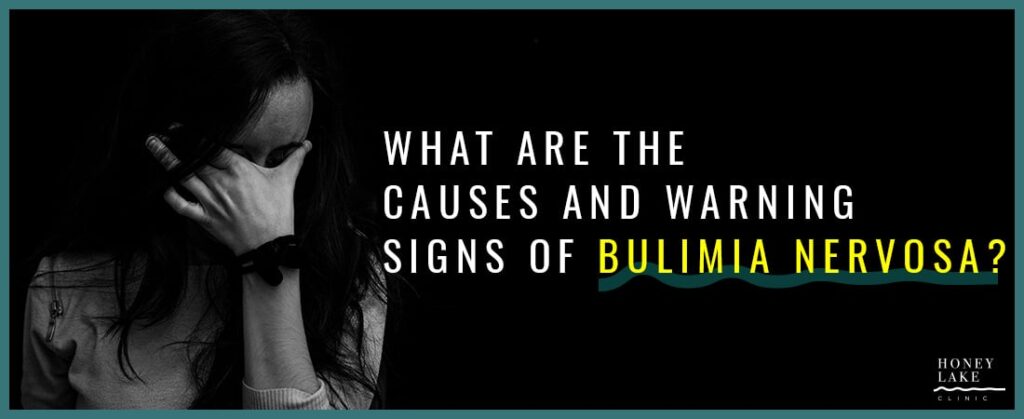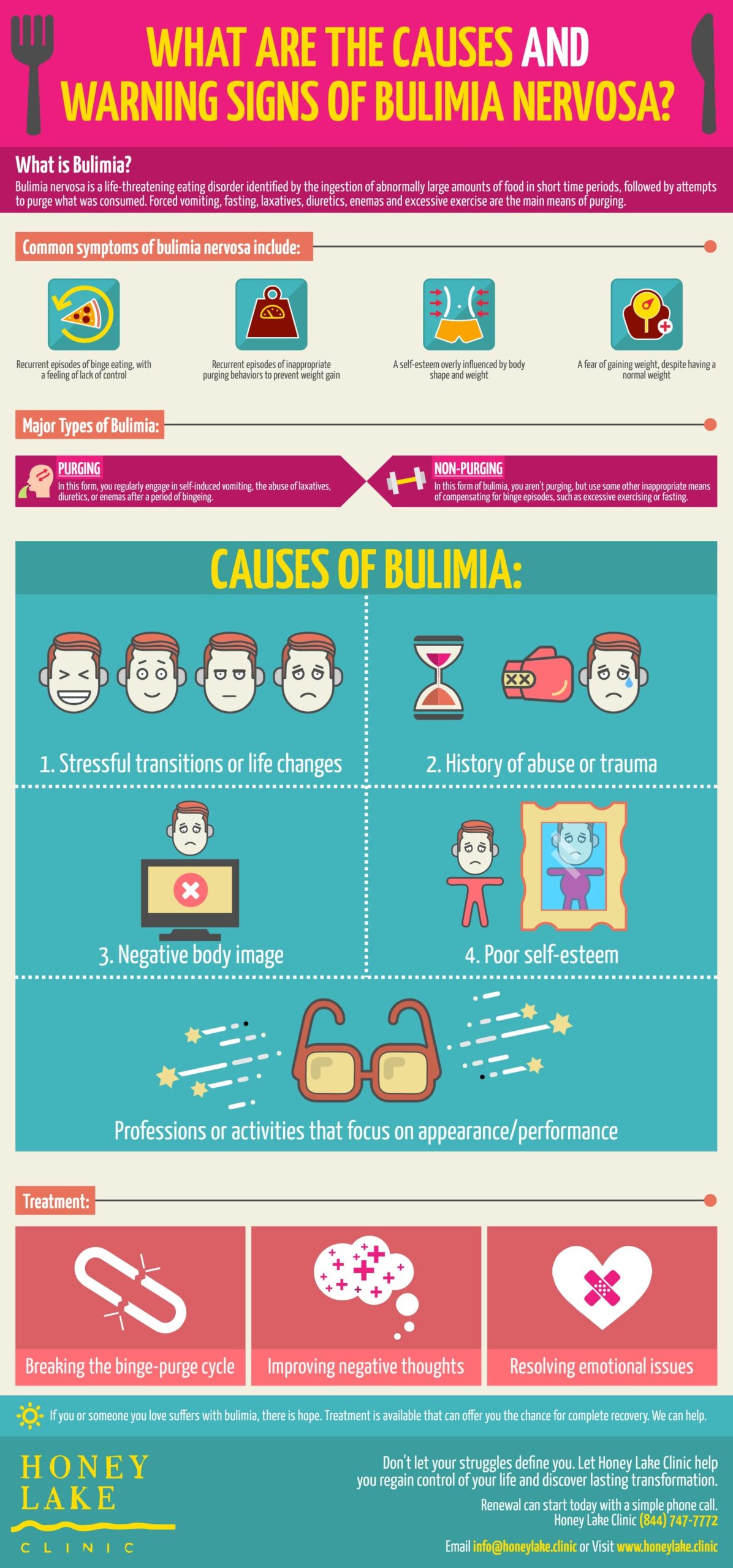What are the Causes and Warning Signs of Bulimia Nervosa?
What is Bulimia?
Do you suspect you or someone you love is suffering from Bulimia? Continuing reading to discover intimate details about Bulimia Nervosa.
Bulimia nervosa is a life-threatening eating disorder identified by the ingestion of abnormally large amounts of food in short time periods, followed by attempts to purge what was consumed. Forced vomiting, fasting, laxatives, diuretics, enemas and excessive exercise are the main means of purging.
Like another well-known eating disorder, anorexia, bulimia tends to develop during adolescence and early adulthood and appears to be less common among men than women.
In practice, bulimia appears similar to another well-known eating disorder, anorexia nervosa. Individuals with bulimia, however, usually maintain a relatively normal weight rather than becoming underweight, typical of many anorexia sufferers.
Common symptoms of bulimia nervosa include:
- Recurrent episodes of binge eating, with a feeling of lack of control
- Recurrent episodes of inappropriate purging behaviors to prevent weight gain
- A self-esteem overly influenced by body shape and weight
- A fear of gaining weight, despite having a normal weight
Side effects of bulimia may include an inflamed and sore throat, swollen salivary glands, worn tooth enamel, tooth decay, acid reflux, abdominal irritation, severe dehydration and hormonal disturbances. In severe cases, bulimia can cause a stroke or heart attack.
If you or someone you love has an eating disorder, we can help. Have a confidential conversation with a counselor right now. Call (888) 837-6577.
Major Types of Bulimia
There are two types of bulimia nervosa you may be experiencing:
- Purging – This type of bulimia is most common of this with this eating disorder. In this form, you regularly engage in self-induced vomiting, the abuse of laxatives, diuretics, or enemas after a period of bingeing.
- Non-Purging – In this form of bulimia, you aren’t purging, but use some other inappropriate means of compensating for binge episodes, such as excessive exercising or fasting.
Causes of Bulimia
A specific cause of bulimia nervosa is not known, though research suggests many factors may contribute to the development of this eating disorder, including genetic, environmental, psychological, and cultural influences. Some other contributors include:
- Stressful transitions or life changes
- History of abuse or trauma
- Negative body image
- Poor self-esteem
- Professions or activities that focus on appearance/performance
Treatment
Eating disorders do not appear in a vacuum. Since negative body image and poor self-esteem are often underlying factors, it is important that therapy is integrated into the recovery process. Successful treatment for bulimia usually includes:
- Breaking the binge-purge cycle. Stopping this harmful cycle, and helping you restore normal eating behaviors, and address health and nutrition is a vitally important first step in treatment.
- Improving negative thoughts. Helping you recognize and change irrational beliefs about your weight, body shape, and dieting are also integral to treatment as these unhealthy thoughts fuel unhealthy behavior.
- Resolving emotional issues. Helping you identify and heal emotional hurts which may be contributing to your eating disorder is vitally important to you finding a healthier future.
If you or someone you love suffers with bulimia, there is hope. Treatment is available that can offer you the chance for complete recovery. We can help.
Bulimia is treatable. Most who receive treatment for bulimia recover and resume a healthy lifestyle. It is important for you to seek treatment as early as possible.
At Honey Lake Clinic, our experienced staff, licensed therapists, psychologists, and psychiatric specialists understand that effective treatment for eating disorders requires a multifaceted, faith-based approach, involving healing of the body, mind, and spirit. Our unique treatment programs specifically and deeply address all three spheres, offering each client his or her greatest chance at wholeness and transformative growth.




